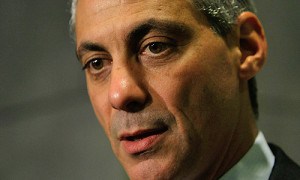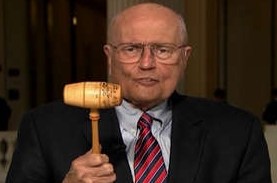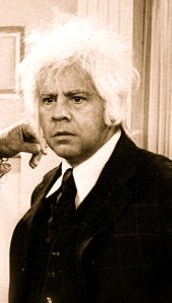 Verizon and Google have reached an agreement in principle to deal away Net Neutrality protections for American broadband users according to a late report in today’s Washington Post.
Verizon and Google have reached an agreement in principle to deal away Net Neutrality protections for American broadband users according to a late report in today’s Washington Post.
Cecilia King writes the agreement is days away from being revealed in public, but two sources verified Verizon and Google have agreed to a split the difference on Net Neutrality — abandoning the open Internet concept for wireless broadband, but protecting against service providers holding bidding auctions over the speed of web content delivery.
Verizon wouldn’t confirm that a deal was struck but said in an e-mail statement:
“We’ve been working with Google for 10 months to reach an agreement on broadband policy. We are currently engaged in and committed to the negotiation process led by the FCC. We are optimistic this process will reach a consensus that can maintain an open Internet and the investment and innovation required to sustain it.”
Specifically, Google and Verizon’s agreement would prevent Verizon from offering paid prioritization to the biggest bidders for capacity on its DSL and fiber networks, according to the sources. But any promises regarding open-Internet access wouldn’t apply to mobile phones, the sources said, speaking on the condition of anonymity because the companies have not officially made their announcement.
And Verizon could offer managed services — better quality to some Web sites such as those offering health care services, the sources said. But some analysts speculate that managed services could also include discounted YouTube and other services to FiOS customers at better quality.
 Public interest groups, some occasionally accused of being in bed with Google, were outraged at the news.
Public interest groups, some occasionally accused of being in bed with Google, were outraged at the news.
“The fate of the Internet is too large a matter to be decided by negotiations involving two companies, even companies as big as Verizon and Google, or even the six companies and groups engaged in other discussions at the Federal Communications Commission (FCC) on similar topics,” said Gigi Sohn, president of public interest group Public Knowledge.
The clear distancing from Google’s settlement illustrates these pro-consumer groups are not simply shilling for Google’s public policy positions.
For Stop the Cap!, the implications are extremely disturbing. As outlined, this compromise deal would relegate wireless broadband to usage caps, speed throttles, and content blockades indefinitely. Should “improved quality” service on the wired side be an available option, it could allow the broadband industry to mount a devastating campaign to end would-be competitors, especially to their video businesses. Cable and phone companies could pick winners and losers (with their products being the winners, and would-be competitors the losers) by prioritizing high quality video services, exempting their partners from Internet Overcharging schemes like usage caps, and subjecting would-be, “non-preferred” content providers to usage and speed-restricted broadband lines.
Offering preferred content producers discounted rates would also completely change the business models of content distribution and discourage investment in would-be challengers that could provide consumers with other video options.
More importantly, it provides an example of an Obama Administration ruthlessly willing to cut consumers out of the debate about Net Neutrality, while forcing them to live with the results. King notes the priorities of Google and Verizon don’t exactly include consumers:
According to the sources, Verizon and Google have met separately to reach an agreement they will tout as an example of successful self-regulation. Once bitter opponents in the so-called net neutrality debate, the firms have grown closer on the issue as their business ties have also strengthened. Verizon partners with Google on their Android wireless phones.
Their actions could set a course for the FCC meetings and what ultimately the parties could present to lawmakers, analysts said.
Voluntary self-regulation worked so well with Wall Street banks and the housing market that a disconnected crowd inside the beltway is willing to give it another try with a broadband industry that is already a duopoly for most consumers. Psychic abilities are not required to guess at the eventual outcome.
Update 12:30pm — The denials are flying over a NY Times piece that claims Google has agreed to pay Verizon’s asking price for prioritized traffic:
Google: “The New York Times is quite simply wrong. We have not had any conversations with Verizon about paying for carriage of Google traffic. We remain as committed as we always have been to an open internet.”
Verizon: “The NYT article regarding conversations between Google and Verizon is mistaken. It fundamentally misunderstands our purpose. As we said in our earlier FCC filing, our goal is an internet policy framework that ensures openness and accountability, and incorporates specific FCC authority, while maintaining investment and innovation. To suggest this is a business arrangement between our companies is entirely incorrect.”


 Subscribe
Subscribe




